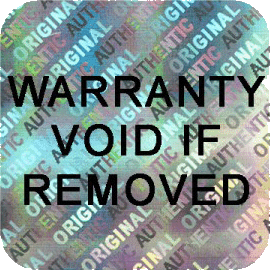Medicaid Planning - Your Questions Answered
Q: I own a home. Am I eligible for Medicaid?
Depending on your other assets and monthly income, under the current New York law, a homeowner is eligible for Medicaid if his equity in the home does not exceed $786,000. However, Medicaid can put a lien on your home after you pass away. In other words, before your home can pass to your beneficiaries, they will need to pay back Medicaid whatever Medicaid had spent on your care. If your beneficiaries do not have the money, they will need to sell your home. Let's take a look at an example:
Roza, a widow, has been using Medicaid since 1991, and until her death in 2012. Medicaid paid for Roza's home attendant, adult daycare, surgeries, doctors' visits, and all medicine. By the time that she passed away in 2012, Medicaid spent $500,000 on Roza. Roza's only asset was her house, worth $600,000, with no mortgage. In her will, Roza left her house to her 5 children. However, as soon as Roza died, Medicaid placed a lien on the house. Roza's children were forced to sell the house for $600,000 and pay Medicaid $500,000 from the proceeds. Only $100,000 was left for Roza's children.
Q: Is there anything I can do to prevent Medicaid from placing a lien on my home?
Yes. It is sometimes possible to transfer your home to a trust or to a child and out of Medicaid's reach. Other times, however, it may be possible to save only a half of the home's value. A qualified attorney will be able to help you select the best legal option for preserving your residence for your family.
Q. How does putting my home into a trust work? Who will own the home, and what will be my rights?
Transferring your home to a trust means that the trust will own the home, not you. A properly drafted trust will allow you to live in the home until your demise, will make sure that the home is paid for, and will preserve all tax benefits and deductions that you received when you were the owner of the property. When you pass away, your home will be transferred to your beneficiaries.
A properly drafted trust will save the home for your children when you pass away. Also, if you do not qualify for Medicaid because your equity in your home exceeds $786,000, placing your home in a trust will allow you to become Medicaid-eligible. Transferring your home to a trust (as opposed to transferring it to a family member) can allow for significant tax savings for your beneficiaries. In addition, of the major advantaged to placing your home in a trust is the avoidance of probate; your family won't have to go through this expensive and lengthy court process after you pass away if your home is in a properly constructed trust.
Q: My income exceeds Medicaid's eligibility guidelines. Do I need to give all of my excess income to Medicaid to qualify?
Spending down your excess income is one way to qualify for Medicaid. But some individuals can qualify for Medicaid and still keep their excess income. Let's take a look at an example:
Mark is single and is 61 years old. He had an accident last year and has started receiving Social Security Disability Insurance payments in May 2012. Mark's monthly disability income is $1,000. He also gets $179 in monthly IRA distributions. Mark's total income is $1,179, and he cannot afford to pay for health insurance.
In May, we told you that to qualify for Medicaid, a single individual may not have more than $812 in monthly income. But, because Mark is disabled, he can qualify for Medicaid, even if his income exceeds the amount allowed by $367. If Mark puts $367 into a specially set up trust account every month, Medicaid will disregard this excess income. Mark can then use the money in that trust account to pay for his rent, his electricity bills, a trip to Florida, or a new air conditioner.




